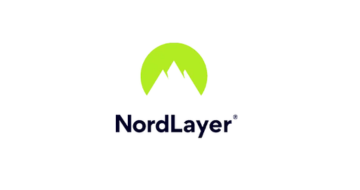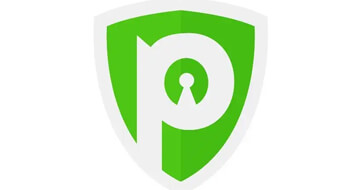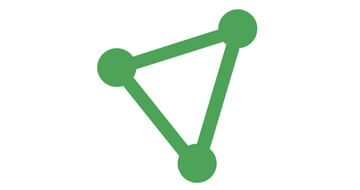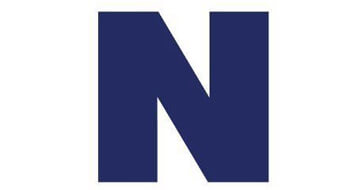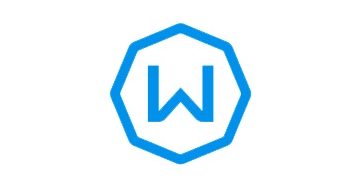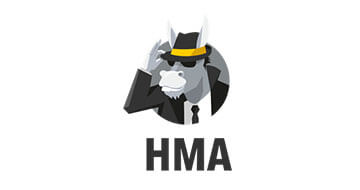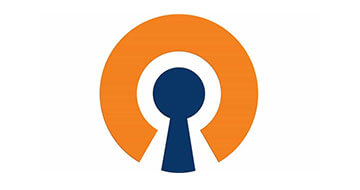What is a VPN?
A VPN is an IT security tool that is used to protect your online privacy by hiding your IP address and also encrypting data sent to and from your device. This tool creates a virtualized network from two separate physical networks. When using the best VPN software from a certain VPN provider, your web traffic is protected with encryption and tunneled through a controlled server after which it goes back to the web as usual.
If you are using a VPN, your information is hidden from anyone who tries to snoop around. Even if the third party controls the network, there is no way for them to access or intercept information between your device and the internet. Since VPNs tunnel your web traffic through web servers, they can also be used to trick your device into thinking you are in a different location. This is the main reason why most people use it in their systems.
What Does a VPN Do?
A VPN is a useful tool for online browsing and streaming. Its uses go beyond your personal usage to access information to commercial use in companies with remote workers. In this section, we highlight the different purposes of the technology.
- Avoid ISP tracking – There has been a controversy in the US regarding IPS tracking, which is used for target advertising. ISPs sell user data to third parties. However, a VPN is a reasonable defense against this invasion of privacy.
- Access to home or work network – Remote employees can access a company’s intranet located miles away using a VPN. The technology can also be used by individuals to access home networks by bridging their devices to the network.
- Safely use a public network – Public Wi-Fi networks are the playground for hackers due to the lack of good encryption protocols. When using such networks, data can be intercepted unless it is encrypted using a VPN.
- Anonymous streaming and downloading – Geo-blocking and restrictions prevent access to certain data on the internet, including streaming and downloading sites. However, with a VPN you can hide your data, change locations and access everything on the internet.
- Privacy from websites collecting information – To produce income, websites use your IP address to come up with targeted adverts from your online activity. A good countermeasure for this is by using a VPN that keeps your IP address hidden.
How We Rank the Best VPN Software
At SaasGenius, we use a detailed evaluation methodology to rate and rank VPN software. Our methodology takes into account important aspects such as pricing, ease of use, features, and support. We also use the Genius Score, a unique scoring system that ranges from 0 to 100, to evaluate each provider. The Genius Score is determined through a combination of external evaluations and thorough testing by our in-house experts.
Main features of a VPN
Every VPN has different features, as advertised on various platforms. To the uninformed, all the marketing lingo might not be understandable. However, there is no need to worry since the best VPNs are built with features that are easy to understand. Here are some of the main features typical VPN software should have.
Split Tunneling
Split tunneling allows a VPN user to choose which apps should run through the best VPN and which ones shouldn’t. For instance, you can have a streaming service over the VPN leaving out video games that might lag.
Servers and Their Locations
User internet traffic passes through a server that hides IP and uses the server’s IP making you appear in a different location. An important point to note is that the best VPN provider should have a good number of servers spread out in different countries.
Integrated Kill Switch
Not even the best VPN service is 100% secure. So, all of them are susceptible to leaks that might expose your real address. A kill switch monitors VPN connection failures and shuts down data transfers.
Anonymous DNS Servers
A DNS server translates the website’s name into an IP address the web uses to direct traffic. This is usually done by the ISP. With the best VPN, an anonymous DNS such as DNSWatch FreeDNS should be used to protect your privacy from prying eyes.
No Log Policy
Each VPN provider has a different log policy. Others keep users’ data for months and then turn them to authorities if requested. Ideally, the best VPN software should have a no-log policy. Be careful since some providers claim to have this feature but in reality, they don’t.
Support for OpenVPN
Each best VPN provider uses different protocols to support its encryption. A bigger selection offers more choices. A good provider should include the OpenVPN protocol which is one of the most modern protocols for commercial use.
Benefits of Using VPNs
An understanding of what a typical VPN benefits you as an individual or organization gives insight into whether you want it and how to use it. In most situations, every company or individual needs the best VPN for their daily internet activities. When properly used, it could significantly improve access to online services.
The best VPN software has found different uses in the current internet-connected world. Below are many use-cases of the tool.
The internet is still young, and there are dangers lurking behind every click. With the best VPN services in 2022, you get to keep your information safe and also have access to restricted websites. Here are the benefits you will enjoy when using the best VPN software.
Unblocking YouTube
While many people enjoy famous cat videos and how-to guides on YouTube, others don’t feel the same way due to geo-blocking. In such a situation, the best VPNs help to bypass restrictions from ISPs. Moreover, there is also YouTube TV which is only limited to the United States.
Access Netflix Regional Content
Netflix is one of the leading streaming services, with thousands of movies and TV shows. Sadly, due to restrictions and licensing clauses, some content from the platform is restricted to specific countries. Most US-based streamers have a huge database of movies to enjoy. For the full power of Netflix, consider signing up with the best VPN service provider.
Downloading or Streaming
Many people also still like to get access to material that’s unavailable in their region. This can mean actually downloading files such as torrenting, or simply streaming off illegal websites. Many countries have made torrenting illegal, so for those intending to torrent, top quality VPN software is a must.
Enjoy NBA Games
Basketball is a huge hit in different parts of the world with the NBA being among the most-watched. However, not everyone has access to NBA live. A VPN is the solution since it can be used with different devices including your router. That means you can watch your favorite NBA matches on your phone, computer, or smart TV.
Access Disney+
Disney plus is available in specific countries with others expecting its roll out in the future. Explaining such to your kids could prove to be a difficult task. Instead of attempting the impossible, the best VPN service can let your kids enjoy whatever they want from Disney+. Not only this but whole other restricted channels including Hulu, UFC, and iPlayer.
Secure Your Network
Network security not only applies to companies and organizations but also to your home network. A website or application can keep track of your online activity by collecting your user data. The data collected is used to create targeted ads. Without the best VPN, you might experience ad pop-ups that will interrupt your online browsing experience. With the best VPN, the website will not have access to your browsers and applications, keeping the information sent and received anonymously.
Get Access to Geo-restricted Services
As stated in the use cases above, most people have no access to certain platforms due to geo-blocking. With the best VPN service, a different IP address is allocated to your device to give it a new location. This gives access to these platforms by tricking them with the newly acquired IP addresses. Not only can you access streaming platforms but also online stores which have the best prices.
Hide Private Information
Hackers can use different methods to intercept information, especially on public networks. Using this information, they can impersonate you to steal. With the best VPN software, the highest level of security such as 256-bit encryption protects user data. This makes information sent from your device unreadable and unusable if intercepted.
Prevents Data Trottling
Data throttling occurs in instances where you have used up your allocated data and therefore the ISP slows down your connection. For best VPN users, one benefit is the ability to avoid speed caps since your ISP will not be able to see how much data you are using. Employees in an organization can enjoy this benefit especially if they have data plans on their smart devices.
Network Scalability
While a private network helps to establish your business, the cost of expanding could go up considering that everything is physical. Using the best VPN server can provide access to more parties of the company simultaneously. Furthermore, key environments can be run using cloud-based technologies for access through secure tunnels of the best VPN. This can include simple email applications to full-blown applications that run on desktops.
Value
Value in regards to the best VPN services refers to getting the most for the least amount possible. Consider extra features including Multi-hop connections and split tunneling. Moreover, nearly all of the best VPN services in 2022 have a graphical user interface that is used to manage connections. You might disregard small things and prefer to manually set everything up. The process could be tedious because you might be required to manually update and won’t get access to additional tools.
Functionality
Evaluating VPN functionality and trustworthiness can be a tricky thing. Despite a few unreliable providers, some major VPN still offer great services. In this article, we have based our ranking system using different comparison methods as stated in the ranking method. The list is based on top products choices from over 100 competitors making each solution the best for the user’s case. This ensures that our readers get the best out of our advice.
Demo Versions
The best way to identify the best VPN software for you is by personally trying out our recommended products. You can do this by using demo versions or free trials that come with most products. Find out if the GUI is easy to use or if the speeds are exactly what you need. Ensure that you are happy with what you spend money on and take advantage of a money-back guarantee in case it does not meet your standards. Let’s dive deeper into understanding the best VPN Services 2022.
Who Should Use VPNs?
Different organizations and companies can implement VPNs for a variety of purposes. With the rise of identity theft and other cybercrime, agencies are now leaning towards VPNs for data access and security. Below are some companies that should consider buying the best VPN software in the market right now.
Businesses
Businesses are probably one of the main benefactors of VPN services. Not only does it provide access for internal entities but also third parties in the agency. Furthermore, the best VPNs offer a secure way to access the company’s crucial data by encrypting IP addresses and information sent between devices.
Healthcare
VPNs in healthcare helps to address different components set by the HIPAA. The regulations require the maintenance of confidentiality, availability, and integrity. Healthcare entities, therefore, need to implement controls, audits, and transmission security. In such entities, the best VPNs can be used to utilize access controls, especially in a cloud management platform.
How Much Does VPN Cost?
Prices for the best VPNs usually vary depending on the number of devices, data usage limits, servers you can connect to, and how long you will use them. The most popular VPNs charge on a monthly and yearly basis. Yearly, the cost goes down compared to monthly charges. On average, you can pay between $2 and $10 per month. Prices for enterprise packages differ from the stated prices.
Methodology
- Who? We are SaaS experts: Our specialists constantly seek the most relevant information to help support your SaaS business.
- Why? We are passionate about users accessing fair SaaS pricing: We offer up-to-date pricing data, reviews, new tools, blogs and research to help you make informed SaaS pricing decisions.
- How? With accurate information: Our website manager tests each software to add a Genius Score using our rating methodology to each product. Our editorial team fact-check every piece of content we publish, and we use first-hand testing, value metrics and leading market data.
